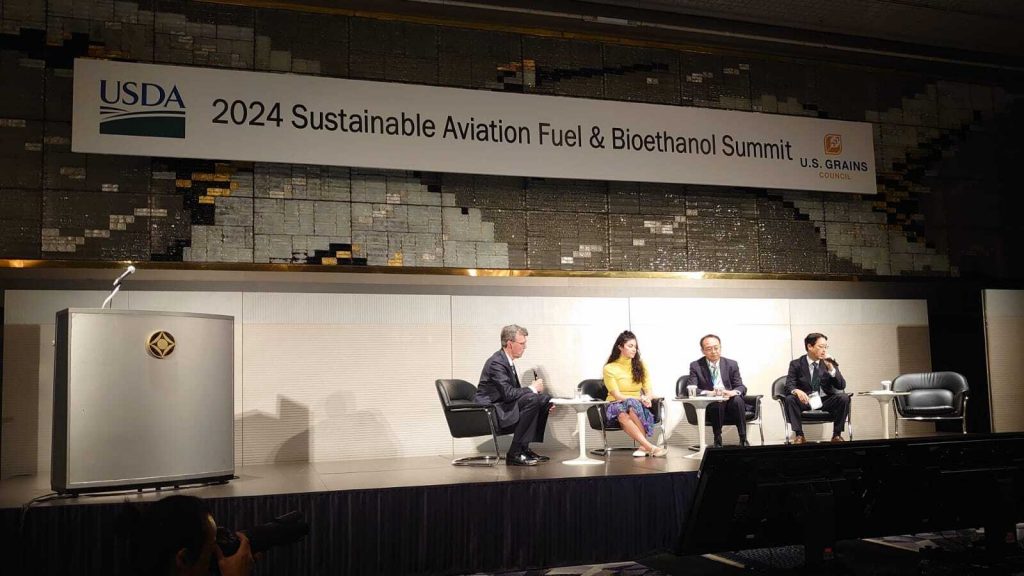U.S. Grains Council (USGC) staff traveled to Tokyo, Japan this week to participate in the 2024 Sustainable Aviation Fuel (SAF) and Bioethanol Summit, where industry leaders, educators and policymakers gathered to discuss the future of biofuel use in the country and the surrounding region.
USGC President and CEO Ryan LeGrand, USGC Senior Manager of Global Ethanol Export Development Ankit Chandra and USGC SAF Consultant Mark Ingebretson represented the Council at the high-level conference that featured opening remarks from U.S. Ambassador to Japan Rahm Emmanuel.
“SAF is the next frontier for decarbonizing the transportation sector, and there is a real appetite from airlines, global governments and consumers to widely adopt SAF sooner rather than later,” LeGrand said. “Part of the Council’s role at the summit is to understand this demand and position the U.S. ethanol industry to play a pivotal role in meeting it.”
Hajime Wakuda, director general of the natural resources and fuel department at the Japanese Ministry of Economy, Trade and Industry, provided a powerful keynote address highlighting Japan’s ambitious climate action goals. He emphasized Japan’s strong commitment to aviation decarbonization and outlined how the country’s SAF roadmap will be central to emissions reduction.
Growth Energy CEO Emily Skor offered an overview of the U.S. ethanol industry’s role in meeting global climate goals in the transportation sector, and Mitsubishi General Manager of Government Relations and Next Generation Energy Saburou Takeuchi gave insights into current governmental and industry policies related to SAF and the impact they will have on overall demand for biofuels, giving attendees a holistic view of ethanol production and applications.
Sessions throughout the morning delved into Japan’s SAF policy framework, the region’s feedstock requirements and technological advances in carbon capture and storage. In the afternoon, Ingebretson led discussions on the alcohol-to-jet (ATJ) pathway, focusing on its commercial application and how airlines are responding to consumer expectations for climate-conscious travel.
The final section of programming shifted attention to the broader Asian and Southeast Asian (SEA) regions, and LeGrand moderated a panel on policy advancements in on-road ethanol use, particularly in Japan and the Philippines.
“There have been a lot of recent ethanol policy successes for the Council to celebrate across Asia, but I think we are only at the tip of the iceberg in terms of tapping into the continent’s full market potential for biofuels and SAF is the next step in expanding these markets for U.S. ethanol,” LeGrand said.
Learn more about the Council’s work in Japan here.
About The U.S. Grains Council
The U.S. Grains Council develops export markets for U.S. barley, corn, sorghum and related products including distiller’s dried grains with solubles (DDGS) and ethanol. With full-time presence in 28 locations, the Council operates programs in more than 50 countries and the European Union. The Council believes exports are vital to global economic development and to U.S. agriculture’s profitability. Detailed information about the Council and its programs is online at www.grains.org.


